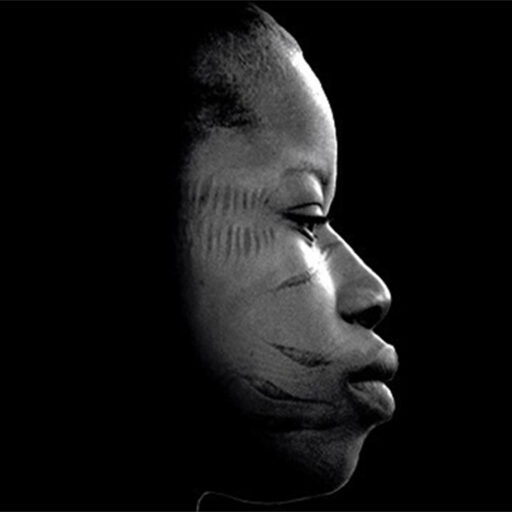Brazilian television is very white, but most Brazilians aren’t.
por Kiratiana Freelon no IndieWire
Brazil’s population is more than 50 percent black, but the television news and entertainment shows rarely reflect such diversity. So when a “black” television show debuts, it’s groundbreaking. And when Brazil’s top black female and male actors star in it, it’s a miracle.
Two weeks ago Globo television premiered “Mister Brau,” a weekly comedic show starring Lázaro Ramos and Taís Araújo as a successful pop music couple. They are also married in real life.
Lázaro Ramos’ 15-year career has spanned movies, television and theater. International audiences probably know him from the dark historical drama, “Madame Satã” (2002). In that movie, he played a manic homosexual who made his living through illicit activities in Rio de Janeiro’s bohemian district of Lapa. Ramos also had a small memorable role in “Carandiru,” in which he played a prison inmate infected with AIDS. Most of his recent roles have been on Brazilian television. In Brazil, Ramos is also known as a fierce promoter of Afro-Brazilian culture and history; He comes from Bahia, Brazil’s blackest state.
His wife, Taís Araújo, isn’t as well-known internationally, but her impact on Brazilian television might be greater than her husband’s. When she was just 17, she became the first black woman to play a protagonist on a Brazilian novela. She played Xica da Silva, an 18th-century Afro-Brazilian woman who was born a slave but eventually became wealthy and powerful through a long-term relationship with her white slave owner. She has constantly worked since then, often appearing in a 7 p.m. novela, the most coveted show for Brazilian actors.
For black Americans, the union between Ramos and Araújo appears to be a perfect match. For Afro-Brazilians, it’s a match that they rarely see. For the most part, rich and successful Afro-Brazilians do not marry black people. Soccer stars marry white women. Black Brazilian models marry white men. Militant black Brazilians always debate the reasons for this. But sociologists have concluded that rich Afro-Brazilians are usually exchanging status when they marry white. They provide the high socioeconomic status in exchange for whiteness, which has a high racial status in Brazil. (http://www.amazon.com/Race-Another-America-Significance-Brazil/dp/0691127921)
When Ramos and Araújo married in 2006, there was no such transaction. There was simply a union of the most powerful black actors in Brazil. And so far, it has worked wonders for them. Through 10 years of marriage and two kids, Ramos and Araújo are still the most visible and powerful black actors in Brazil. They appeal to all Brazilians, but they are beloved by Afro-Brazilians. Araújo regularly appears in television ads for skincare and baby clothes. Ramos regularly makes guest appearances on major television talk shows. Despite this, both of them are still renown for acting roles that they played more than 10 years ago, Araújo at least 20 years ago. They both need “Mister Brau” to be a hit show.
With “Mister Brau,” the couple and Globo television appear to have figured out how to capitalize on their visible relationship. Ramos plays the pop star who uses African rhythms in his music. Araújo stars as his beautiful wife, choreographer and manager. Many of the story lines revolve around their relationship. The first show, which you can watch below (sorry no subtitles), opens up with them buying a $3.5 million mansion in Barra, a neighborhood known for new wealth in Rio de Janeiro. What happens when music stars move into a neighborhood? They party. Their white neighborhoods are shocked and disappointed and even attempt to sell their house at a loss. Somehow Ramos and his white neighbor, who is a lawyer, develop a business relationship.
Visually the show is spectacular. Araújo wears wild hair extensions that make her look like a Greek Goddess. And she wears the clothes to match the hair—vibrant, colorful flowing dresses. The previews show Ramos using African clothes and makeup during his packed arena performances. Ramos delivers energetic and dynamic performances in every scene, often overshadowing all the other actors and actresses.
I watched the first episode with Naiara Paula, a college educated Afro-Brazilian woman who Brazilians would call militant. In America, she would just be an Afrocentric black woman who just wants to see more people like herself on TV. Paula thought the show was groundbreaking because black people are usually shown on Brazilian television as maids, bandits and, in general, poor people.
“On television, especially on GLOBO, it’s very difficult to see a black man and woman married, living in a big house and wearing beautiful African clothes,” Paula said. “So Lázaro and Taís are amazing for being able to achieve this on Brazilian television.”
But she also felt that the show propagated many stereotypes that Afro-Brazilians are trying to get away from. Mister Brau is an uneducated musician who strays from his marriage with a white woman. Araújo is a black temptress and her white married neighbor has a crush on her.
It’s the juxtaposition of Mister Brau and his wife with the white couple that she found especially troubling.
“There is a white man who is a lawyer because of course only white men can only be lawyers in this country,” she said jokingly. “The white man is well educated, speaks correctly, studies, and is in a good place in life with his wife.”
“It’s the black couple who are doing everything wrong. They aren’t well educated and they don’t follow rules,” she added.
Paula asked: if every storyline compares the black and white couple, then wouldn’t the white couple always appear to be the “good” ones?
Despite these reservations, she laughed often during the show, which shows its entertainment value.
It’s too early to say if the show is a hit or not, or even if it is good, great or just OK. Many of the Afro-Brazilians I know said they are going to support the show regardless of its quality because they want more diverse television.
Leia também
“Cresci sem ter um casal negro que me representasse”, diz Taís Araújo
THIS ARTICLE IS RELATED TO: TV Features




